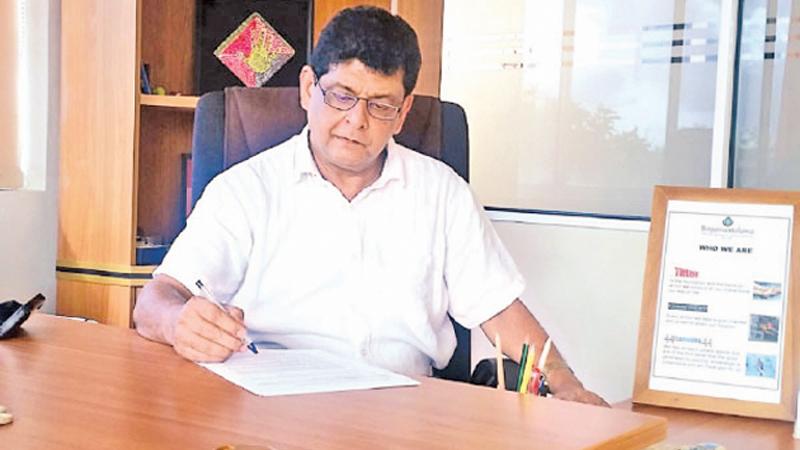
Despite the tea industry being at the cross-roads it has enormous potential for growth which will be supported by the ‘Tea Strategy Road map for 2030’ initiated by the stakeholders of the industry, Sri Lanka Tea Board Chairman Jayampathy Molligoda told the Business Observer last week.
Molligoda who assumed duties recently said he is optimistic the perennial and lucrative industry will bounce back from tough times due to the global factors that have eroded its market share and prices in the recent years.
However, the SLTB chief in no uncertain terms said the quality of tea and maintenance of standards has to be met if the industry is to compete and increase export volumes.
“The good news is that after 18 years industry stakeholders comprising the Colombo Tea Traders’ Association, Tea exporters Association, Planters’ Association, the Tea Smallholders Association, The Plantations Minister and the SLTB met to deliberate the way forward for the industry,” Molligoda said adding that ‘if the industry could come to some consensus on the way forward strategy and look after the entire value chain from the grower to big retailer down to the grower export volumes will grow and exporters will be able to pay a better price at the auctions’.
He said currently planters are facing severe cash flow problems due to the drop in global tea prices which are beyond one’s control.
However, the new Tea Board chief sees a silver lining for the industry due to the unstinted support and interest shown by the stakeholders to restore the pride of the Ceylon Tea brand due to the unblemished reputation it enjoyed for decades.
“Production and export revenue was low and that partly due to the climate change effects. However adhering to good global agricultural and manufacturing practices productivity could be increased and quality could be maintained,” Mollogoda said adding that steps have been taken to improve the standard of green leafs which has dropped over the years.
The SLTB expects tea production to surpass last year’s figure of around 304 million kgs and export income of around US$ 1.4 billion this year given good climatic conditions prevail.
However, according to the SLTB chief, achieving the goals will depend on the industry evolving a short to long term strategy.
The SLTB will be backing the tea replanting and infilling program that had been launched in the past and it will be accelerated according to Molligoda.
Tea replanting has not taken place up to the required level which should be at least two percent of the total extent of cultivation. However, planters have been reluctant to embark on the project as it involves a heavy cost and takes time to bring in returns.
Meanwhile tea exporters showed displeasure over the move to use part of the tea promotion levy on tea replanting as the levy is exclusively for promotion of the Ceylon Tea brand.
“Certainly the tea promotion levy is for promotion but if there is no adequate production export volumes would drop,” Molligoda said. Former SLTB Chairman Lucille Wijewardena said at a media briefing last year the use of the tea promotion levy for tea replanting is a misconception and that it is incorrect to use the word ‘split’ as there is no split of the fund other than a reduction of the total promotion levy from Rs. 350 to Rs. 300 per kg. What we have proposed is a levy Rs. 1.50 per kg that will contributed by the entire tea value chain.
Sri Lanka is the fourth largest tea producer in the world led by China with over 2.2. billion kgs, India 1.2 billion kgs and Kenya 400 million kgs. Sri Lanka exports around 290 to 300 million kgs annually.
On the wage issue he said it is up to the Regional Plantation Companies (RPCs) and the signatories to the Collective Agreement to look into wages. The agreement contains a provision to migrate to a revenue and productivity sharing model as opposed to the fixed daily wage model.
When asked about promoting tea blending which has been opposed by a segment he said, “Sri Lanka cannot continue to depend on exporting around 300 million kgs of black tea and tell buyers take it or leave it.”
“We need to consider market needs and adopt accordingly to cater to the diverse needs of consumers.”
